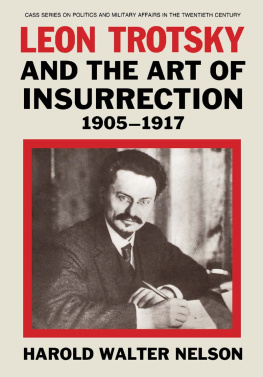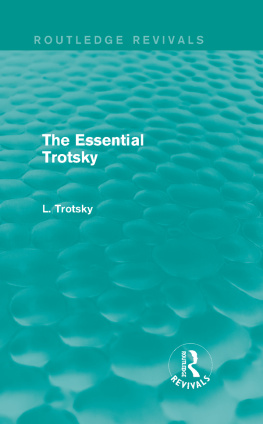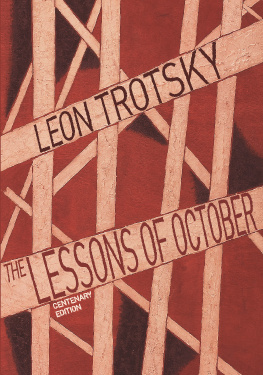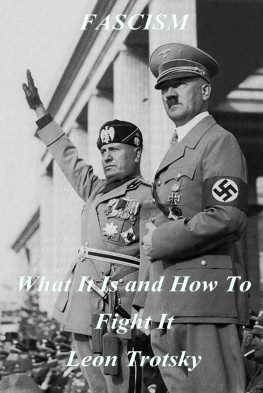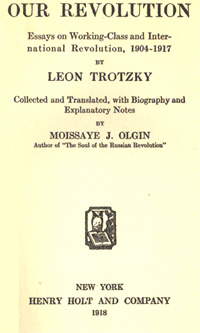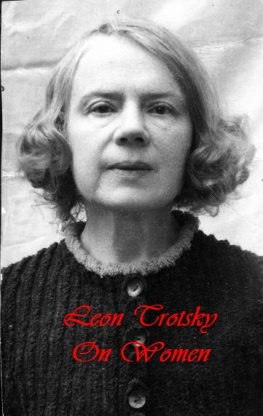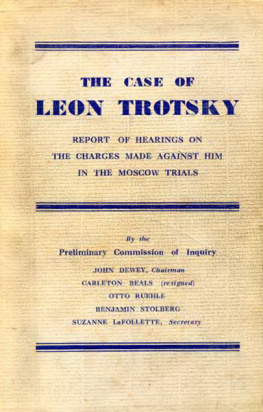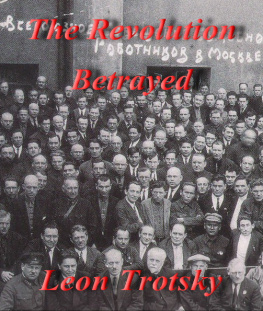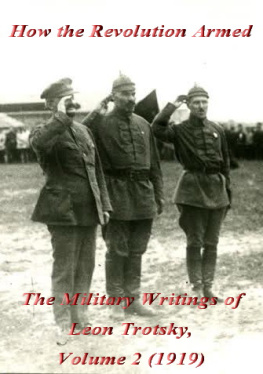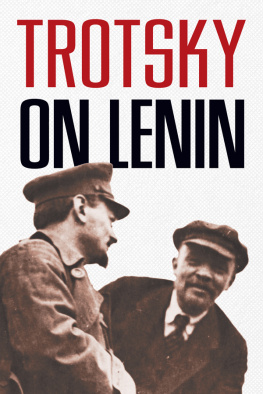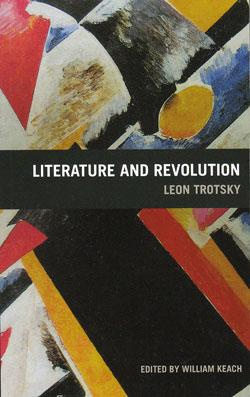CASS SERIES ON POLITICS AND MILITARY AFFAIRS IN THE TWENTIETH CENTURY
LEON TROTSKY AND THE ART OF INSURRECTION 19051917
LEON TROTSKY AND THE ART OF INSURRECTION 19051917
HAROLD WALTER NELSON
U.S. Army War College
First published 1988 by
FRANK CASS AND COMPANY LIMITED
Published 2013 by Routledge
2 Park Square, Milton Park, Abingdon, Oxon OX14 4RN
711 Third Avenue, New York, NY, 10017, USA
Routledge is an imprint of the Taylor & Francis Group, an informa business
Copyright 1988 Harold Walter Nelson
British Library Cataloguing in Publication Data
Nelson, Harold Walter
Leon Trotsky and the art of insurrection 1905-1917
1. Soviet UnionHistoryNicholas II, 18941917 2. Soviet UnionPolitics and government1894-1917
I. Title
947.083 DK262
Library of Congress Cataloging-in-Publication Data
Nelson, Harold W.
Leon Trotsky and the art of insurrection, 19051917.
Originally presented as the authors thesis (doctoral)
Bibliography: p.
Includes index.
1. Trotsky, Leon, 18791940KnowledgeMilitary art and science. 2. Soviet UnionHistoryNicholas II, 18941917Historiography. 3. Soviet UnionHistory, Military18011917. I. Title.
DK254.T6N45 1987 947.0840924 87-14164
ISBN 13: 978-0-714-63272-8 (hbk)
ISBN 13: 978-0-714-64065-5 (pbk)
All rights reserved. No part of this publication may be reproduced, stored in a retrieval system, or transmitted in any form, or by any means, electronic, mechanical, photocopying, recording, or otherwise, without the prior permission of the publisher.
Contents
Note on Transliteration
There is no entirely satisfactory solution to the problem of transliterating names and words from Russian to English. I have followed the Library of Congress system with a few exceptions. The most obvious of these is exemplified in the title and in all subsequent references, where I have written Trotsky, following customary English usage, rather than using the proper transliteration Trotskii.
This work began as a doctoral dissertation more than a decade ago. Each passing year brought new support that I can now gratefully acknowledge. Throughout, I have been simultaneously pursuing academic interests and a military career an endeavor that often posed formidable challenges. Since military commitments always came first, I can thank military men who reduced obstacles to my academic aspirations and scholars who encouraged my halting efforts.
Tom Griess, Bill Stofft, and Reg Shrader head the military ranks because they found places for me to teach at the Military Academy (West Point), the Command and General Staff College (Fort Leavenworth), and the Army War College (Carlisle Barracks). These teaching assignments allowed me to improve my knowledge of Soviet affairs, revolutionary theory, and military thought. At the same time, I was in the midst of stimulating colleagues and students who kept me abreast of military developments and convinced me that a monograph addressing the organization of revolutionary violence had more than passing relevance. Mike Krause, Bob Frank, Bob Doughty, and Rupert Pate were the colleagues who tirelessly shared burdens and provided inspiration when my research lagged. Some who were captains when this project began are now colonels. They obviously inspired many others in their careers dedicated to teaching an army.
Bill Rosenberg, John Shy, and Roman Szporluk professors at the University of Michigan head the list of patient scholars. They first captured me with their gifted teaching and then guided me through the complex joys of research and writing. When their interest began to bear fruit, Jay Luvaas and Michael Handel professors at the Army War College encouraged me to make the product into a finished work.
Anyone who uses his free time to write could not do so without remarkable family support. My wife, Janet, has stoically set up housekeeping in seven new places as this book progressed. In each instance, and in our everyday lives, she took on added tasks so that I could read my dusty books and think my dusty thoughts. Our daughters, Karen and Catherine, have made similar adjustments. I could not have achieved my military career objectives, let alone pursued my academic interests, without their loving support.
With all this help applied over so many years, I should have produced a perfect monograph. I have not, and I acknowledge that fault as my own.
H.W.N.
Introduction
Revolutions need generals; men who study the problems of armed conflict, organize the resources of war, and inspire men in battle are indispensable in the revolutionary situation. Without their leadership the revolutionary enthusiasm of the masses will be dissipated without effecting change. The revolutionary leader fears that the old order will be able to defend itself against uncoordinated revolutionary action, leaving power in the withered hands of an outmoded social class. In a workers revolution the title of general may be anathema, but the function must still be performed. This is not to say that revolutionary military leaders and conservative military leaders will be interchangeable. In the definition of the nature of the struggle, in the selection and use of resources, and in the methods of leadership the revolutionary general will differ dramatically from his enemy who defends the established order. The similarity is one of function rather than style.
This functional definition of revolutionary military leadership is essential in understanding Leon Trotskys role in the Russian Revolution, for most of the confusion which impedes our ability to analyze effectively the part he played in the October coup springs from an unwillingness to reconstruct carefully the functional role which Trotsky played and the experiences which had prepared him to fill that role. Trotsky was one of the revolutions generals.
Contemporaries perceived this, and historians in the West have been echoing them for more than fifty years, so why spend more time on the most famous of the Russian revolutionary generals? The answer is embarrassingly simple. Each word revolutionary and general carries a heavy connotative burden, and when the first is used to modify the second the new term does not lend itself to easy definition. Most writers who have described and analysed Trotsky have concentrated on the revolutionary, evaluating his performance in terms of the Marxian model which seems to be the best standard. Others have concentrated on his performance as a general, using what our Soviet colleagues like to call bourgeois standards and assumptions to evaluate his actions. Confusion
We cannot understand this aspect of Trotskys contribution simply in terms of early twentieth century European Marxian revolutionary theory or in terms of the military theory of the time. In military revolutionary theory Trotsky was above all a Russian theorist, drawing on the traditions as well as the innovations of the Russian revolutionary left. We must recognize that Russian Marxist military history does not begin with the origins of the Red Army in 1918 or with Petrograd military committees of 1917. The first conference of Russian Social Democratic Labor Party Military Organizations met in October, 1906. Earlier that year, at the Fourth Party Congress in Stockholm, the delegates had given careful consideration to questions of partisan warfare and armed insurrection. Russian Marxists, especially Bolsheviks, were engaged in developing a revolutionary military doctrine which went far beyond that of Marx and Engels. When Trotsky began to write on military topics after the revolution of 1905 he was responding to this preoccupation with violent revolution which had seized the imagination of his Russian colleagues.


